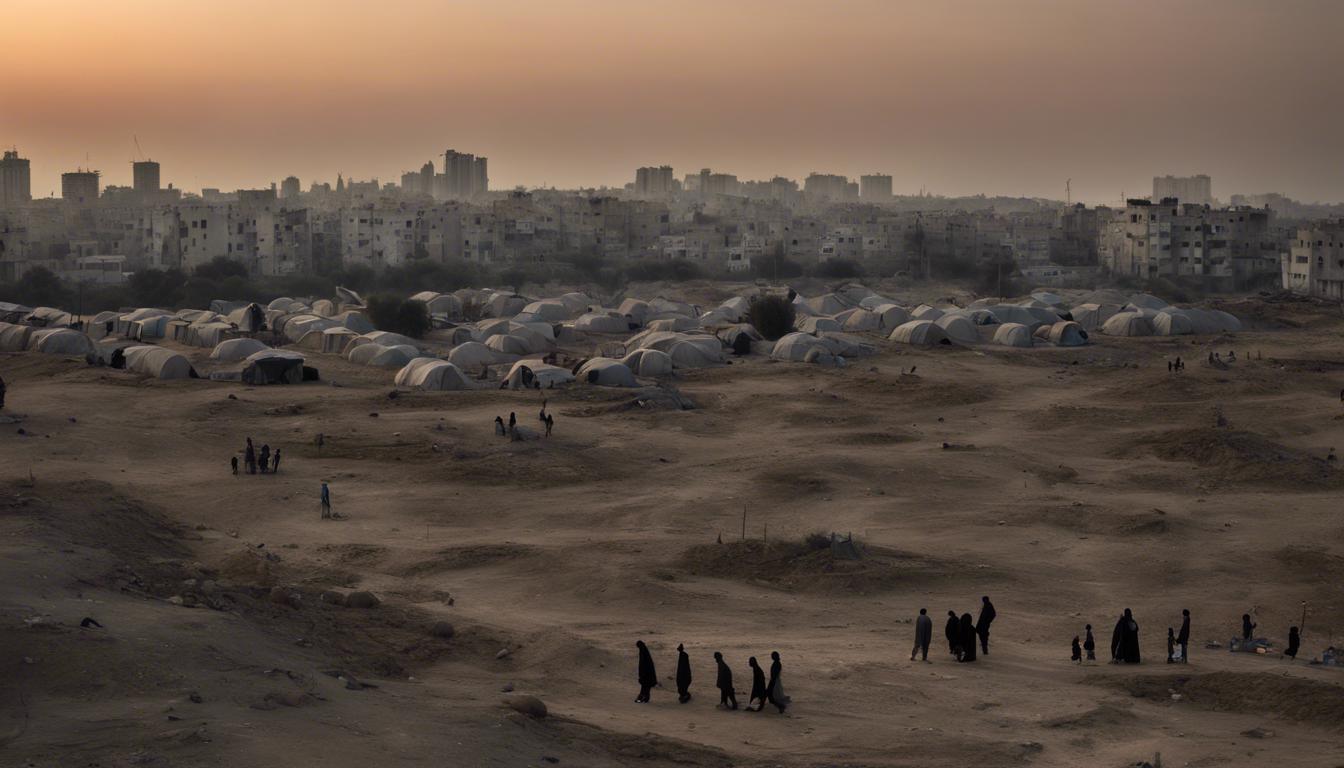A UN-supported report warns that the Gaza Strip could face official famine declaration by May, with over 1.1 million people at risk of catastrophic hunger amid continuing conflicts and supply shortages.
A severe famine threat looms over the Gaza Strip, with a United Nations-supported report forecasting that famine could be officially declared by May if current conflicts and supply shortages continue. The report, issued by the Integrated Food Security Phase Classification (IPC), warns that over 1.1 million people in Gaza, nearly half its population, are on the brink of “catastrophic hunger.” It outlines that a famine is characterized by extreme food shortages for at least 20% of the population, combined with high rates of malnutrition and increasing daily deaths due to starvation or malnutrition-related diseases.
The dire situation has notably worsened, with the number of individuals facing catastrophic hunger doubling since the previous IPC report in December. Specifically, the North Gaza and Gaza Governorates are at imminent risk of famine if there is no improvement in conditions. The report urgently calls for global attention and increased humanitarian aid to prevent a disaster.
Under the 1949 Geneva Conventions, Israel, as the occupying power in Gaza, holds the responsibility to ensure the basic necessities, such as food and medical supplies, are met for the Palestinian population. Despite debates on Gaza’s status and historical claims, the critical humanitarian crisis demands immediate action to ease the suffering of Gaza’s people. The UN has criticized the ongoing restrictions on aid delivery and stressed the importance of better access to essentials to mitigate the crisis further.
Residents of northern Gaza are particularly hard-hit, with predictions of a rapid increase in malnutrition-related deaths among children, who are already suffering, with at least ten reported fatalities from starvation. The World Food Programme’s Executive Director, Cindy McCain, highlighted the urgent need for action to prevent the descent into a full-scale famine, emphasizing that 300 supply trucks are needed daily but access remains severely restricted. Aid organizations advocate for a ceasefire between Israel and Hamas to allow for vital humanitarian work.
This crisis has prompted accusations from EU foreign policy chief Josep Borrell, who criticized Israel for aggravating the situation, suggesting the use of starvation as a weapon of war. The escalating food crisis, described by experts from CARE International UK as unprecedented in speed, severity, and scale, requires an immediate and substantial humanitarian response to avert further tragedy and loss of life in Gaza.













